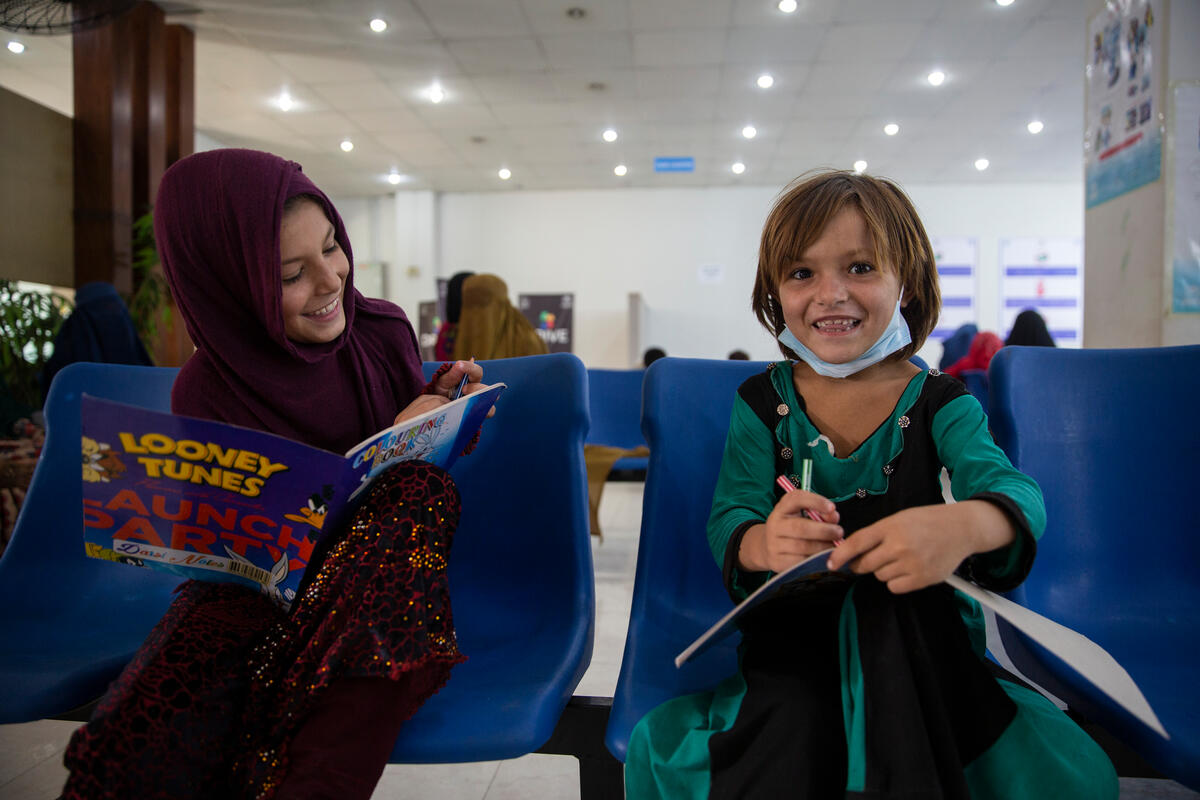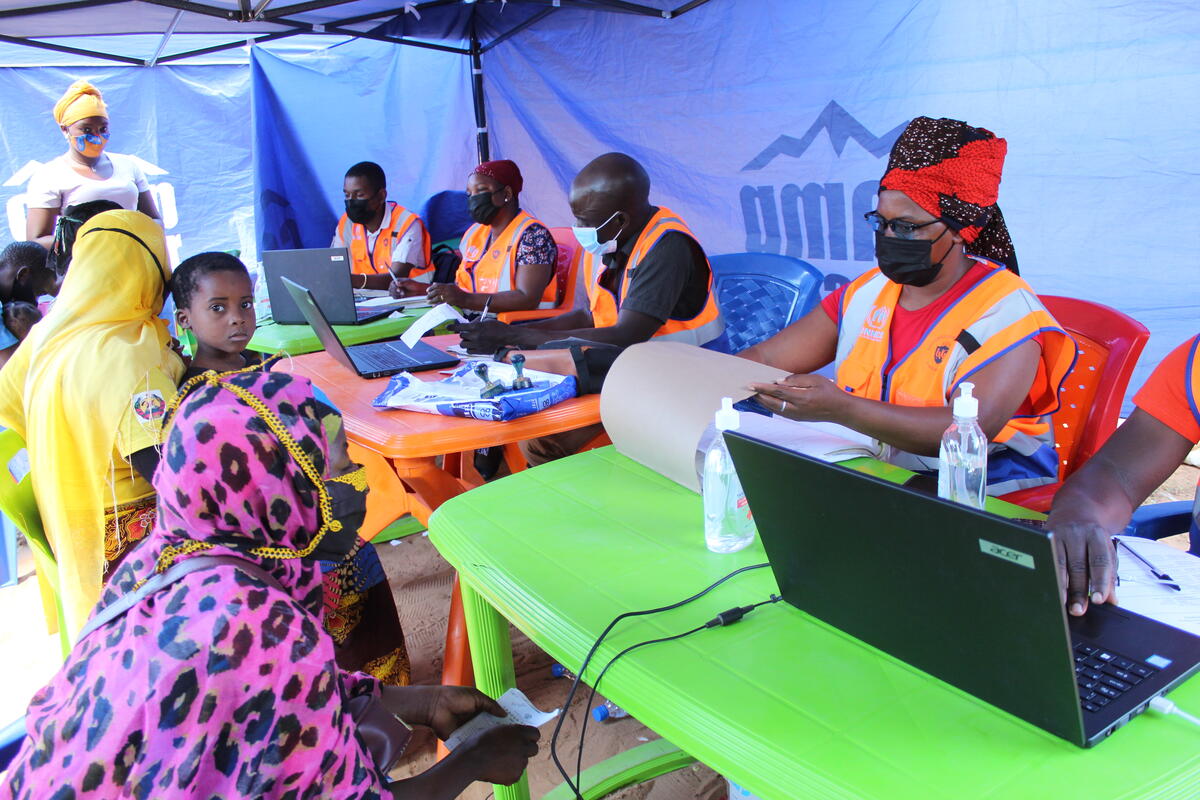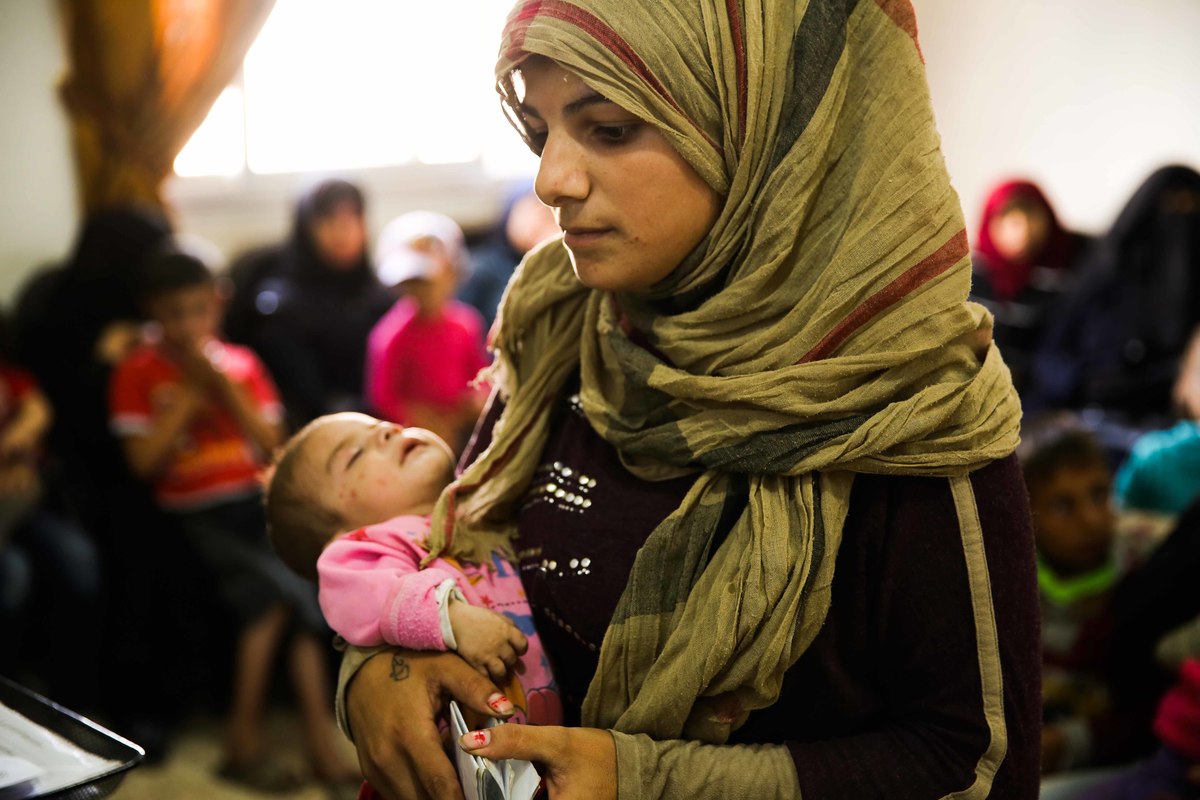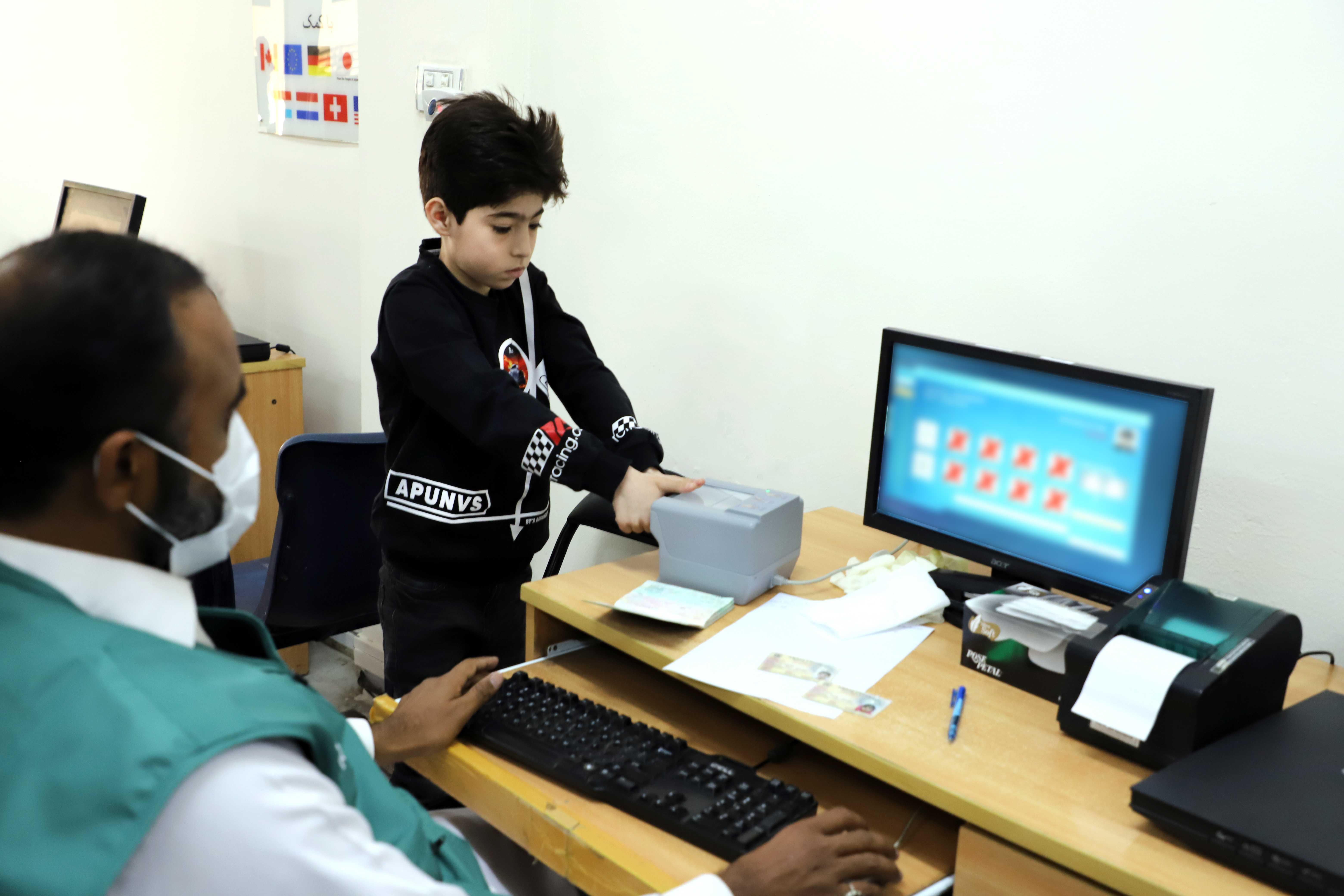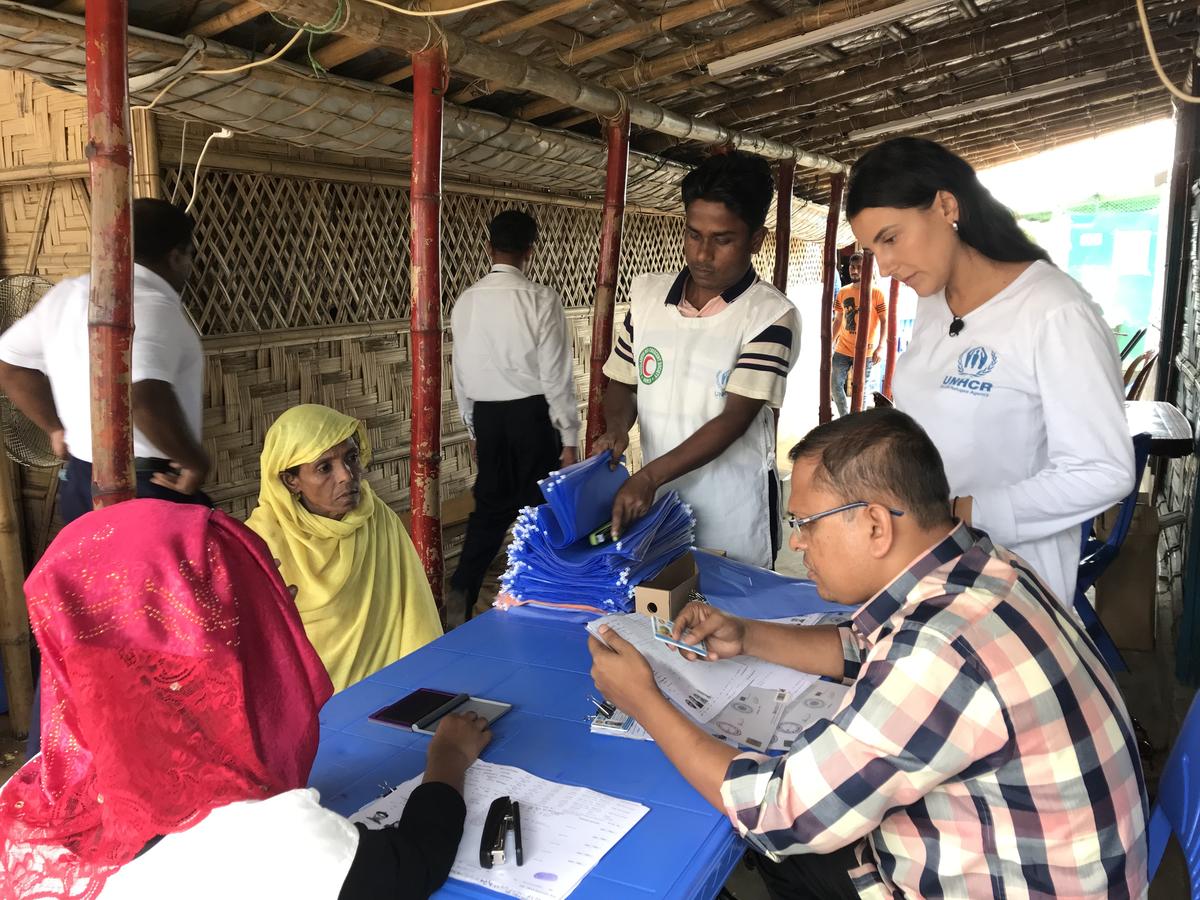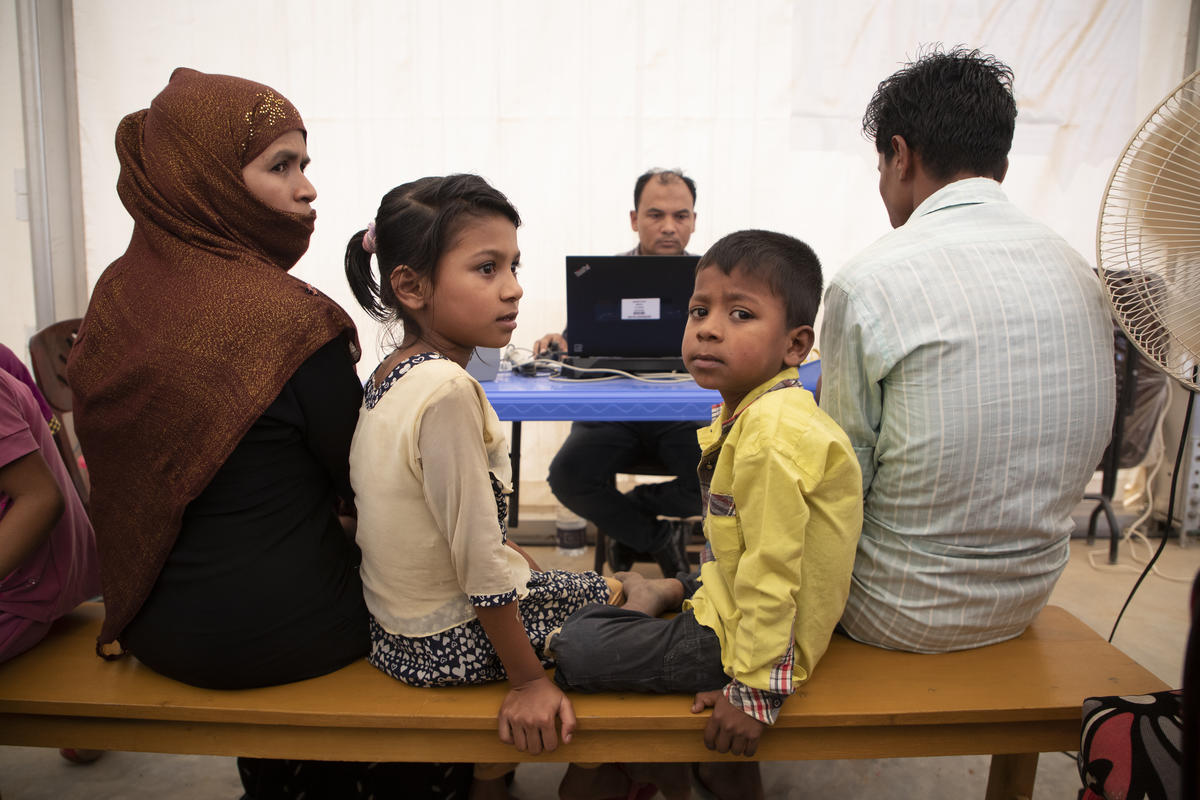Fingerprints mark new direction in refugee registration
Fingerprints mark new direction in refugee registration

KUALA LUMPUR, Malaysia, November 30 (UNHCR) - At the registration area of the UN refugee agency in Kuala Lumpur, Nang Piang, a refugee from Myanmar, placed his finger tentatively on the biometrics scanner. Within seconds, his fingerprint flashed on the computer screen. He appeared slightly puzzled by the new technology, but unperturbed.
"I don't know what it is for, but I do what UNHCR wants me to do," he said with a shrug. His biometrics data was recorded in his electronic file, and he left the room. It was apparent that the new biometrics registration system meant very little to Nang Piang, merely another administrative hoop to jump through.
But to UNHCR, this was a historical moment. Malaysia on Monday became the first country in Asia to launch UNHCR's new biometric registration system, which efficiently marries fingerprinting identification with UNHCR's refugee database system, called ProGres.
Biometrics is a unique, measurable characteristic or trait of a human being - in this case a fingerprint - for automatically recognising or verifying identity.
"This is an important step for UNHCR Malaysia as we strengthen the security of our registration system to prevent fraud," said Volker Türk, head of UNHCR in Malaysia. "Each fingerprint is unique, no two are alike. By referring to this unique human feature, we can determine if a person is already enrolled in our system, and verify if an identity claim is true."
"For instance," he added, "if a rejected asylum seeker tries to reapply for refugee status, the system will automatically discover this. The system will also discover if a person is fraudulently claiming to be someone she, or he, is not. Such a security measure will certainly enhance the credibility of UNHCR's registration system in the eyes of the Malaysian government and other partners."
Ephraim Tan, UNHCR's information technology manager, explained that the new system scanned 1,000 fingerprints a second to verify identity or to catch duplications. Previously, this would have to be found through a time-consuming individual search of biographical data.
"It used to be that double registrations would be discovered by chance when a staff member deliberately conducted such a search," said Tan. "Now, the system will be programmed to conduct such searches at the end of the working day."
Tan hastened to add that double registrations were often the result of human error and not malicious intent: "Sometimes people have been registered at another location and, not understanding the procedure, register again at our office."
At the same time, though, the biometrics scan acts as a deterrent against fraud. "Knowing that their identity will be verified with a fingerprint scan when they approach UNHCR will deter anyone from stealing the identity of a refugee," Tan said.
Tan explained that for now, only those newly registered with UNHCR would have their fingerprints recorded. Soon, however, UNHCR will begin to capture the fingerprints of all 49,000 refugees and asylum seekers already in the system in Malaysia.
"It will be slow and tedious, but well worth it when all those registered with us can be identified by their unique fingerprints instead of just a photograph," said Tan.
The launch of biometrics in Malaysia follows successful implementation in Kenya and Tanzania. The Kenya operation has used this technology to detect cases of attempted multiple registrations under different identities. UNHCR expects six to eight countries to implement the biometrics technology this year, taking the agency a step closer towards developing a more standardised worldwide registration system.
Back in Kuala Lumpur, at the end of a long day of troubleshooting the new technology, Tan helped a young refugee woman from Myanmar with her fingerprint scan.
As he explained the use of the scanner to capture a characteristic that was uniquely hers, the woman's face broke into a smile as she nodded in agreement. "Now no one can come to UNHCR and pretend to be me," she said.
By Yante Ismail in Kuala Lumpur, Malaysia


